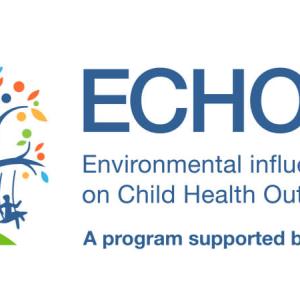Organizations join forces to create global alliance against antibiotic resistance
The ARLG and COMBACTE will work together on a number of initiatives designed to fight drug-resistant infections.
ECHO program set to begin expansive child health research
The DCRI serves as the Coordinating Center for the program, which received single IRB approval to proceed with its expansive observational research.
Few people with heart failure take guideline-recommended drug
DCRI researchers found that heart failure patients are much more likely to take a guideline-recommended medication if they are started on the drug while still in the hospital.
Study finds lower death rates for TAVR centers that do more procedures
Hospitals that perform the highest volume of transcatheter-aortic valve replacement (TAVR) procedures have significantly lower mortality rates than centers that do fewer of the minimally invasive surgeries, according to an analysis by a collaboration that included the DCRI. The finding, published April 3 in the New England Journal of Medicine, comes as the Centers for Medicare & Medicaid Services is reconsidering the procedure’s coverage parameters, which established a center’s volume as a key criterion for reimbursement.
Lack of physician guidance, fear of side effects lead to lower statin adherence
Despite national guidelines indicating that statins can lower risk of heart attack and stroke, many patients who could benefit do not take them.
Large accountable care organizations committed to overhauled Medicare program
While most Accountable Care Organizations (ACOs) have committed to continue participating in the recently overhauled flagship Medicare Shared Savings Program (MSSP), physician-led ACOS are leaving at a higher rate than in 2017, new research from the Duke-Margolis Center for Health Policy and Leavitt Partners shows. Highlights of this research were published this month in Health Affairs. The DCRI’s Donald Taylor, PhD, is one of the study’s authors.
ACC 2019: 12-month results show ticagrelor safe in STEMI patients treated with thrombolysis
When comparing ischemic endpoints, no significant difference was found between patients who received ticagrelor and patients who received clopidogrel.
ACC 2019: Use of guideline-directed medical therapies for comorbidities may improve outcomes for patients with atrial fibrillation
Most atrial fibrillation patients with comorbidities do not receive all the guideline-directed medical therapies (GDMT) they are eligible for, but new evidence from the DCRI suggests use of these therapies is associated with better outcomes in populations with certain comorbidities.
ACC 2019: Some heart disease, AF patients on combined therapies could skip aspirin
In a finding that suggests less is more, researchers led by the DCRI found that the drugs apixaban and clopidogrel — without aspirin — comprise the safest treatment regimen for certain patients with atrial fibrillation (AF). The finding, which applies specifically to patients with AF who have had a heart attack and/or are undergoing percutaneous coronary intervention, should reassure clinicians and patients that dropping aspirin results in no significant increase in ischemic events such as heart attacks, strokes and blood clots.
ACC 2019: Study confirms diagnostic accuracy of non-invasive technology for heart pain
One-year follow-up results show that a newer, non-invasive technology to evaluate heart pain provided a reliable way to identify which patients had dangerous artery blockages, according to a study co-led by the DCRI. The findings, reported Sunday at the annual College of Cardiology meeting in New Orleans, suggest that fractional flow reserve CT (FFR-CT) scans are effective in helping doctors determine which patients need more aggressive treatments.






